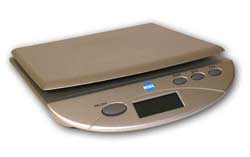The definitive marijuana guide from Cannabis UK
Dexanabinol Pharmos
by
Pop E.
ABSTRACT
Dexanabinol is a non-psychotropic cannabinoid NMDA receptor antagonist under development by Pharmos Corp for the potential treatment of cerebral ischemia, glaucoma, Alzheimer's disease, cardiac failure, head injury and multiple sclerosis (MS) [311522]; it is in phase III trials for traumatic brain injury (TBI) [388709]. Dexanabinol was licensed to Pharmos for development from its originator, the Hebrew University of Jerusalem [180441]. Pharmos is seeking to enter into a strategic agreement with another company to develop and commercialize dexanabinol [317369]. Unlike its enantiomer, HU-210 (Yissum Research Development Co), dexanabinol does not interact with cannabinoid receptors [223330]. It has also exhibited more effective antioxidant and anti-inflammatory properties than MK-801 (dizocilpine; Merck & Co Inc) [167980], [168212]. In addition, dexanabinol is generally well tolerated and appears toxicologically safe [170116]. Pharmos has been awarded a Small Business Innovation Research grant from the National Institutes of Health (NIH) National Institute of Neurological Disorders and Stroke, Division of Stroke and Trauma. The grant covers the development of new prodrugs and novel formulations of dexanabinol and will support additional study of dexanabinol compounds for various indications. The prodrugs being studied are part of the group of compounds that include dexanabinol [247958]. A Notice of Allowance was received in March 1999 on a patent covering the use of the drug in the treatment of MS [324163]. The use of dexanabinol and its derivatives to treat MS is described in US-05932610 [358503]. An oral formulation of dexanabinol is claimed in US-05891468. Dexanabinol analogs with special utility in acute and chronic pain are claimed in US-04876276, while dexanabinol analogs for neuroprotection are claimed in US-06096740. Pharmos estimates that the worldwide market for dexanabinol in the treatment of severe head trauma may reach $1 billion per year
HOME

Sitemap:









